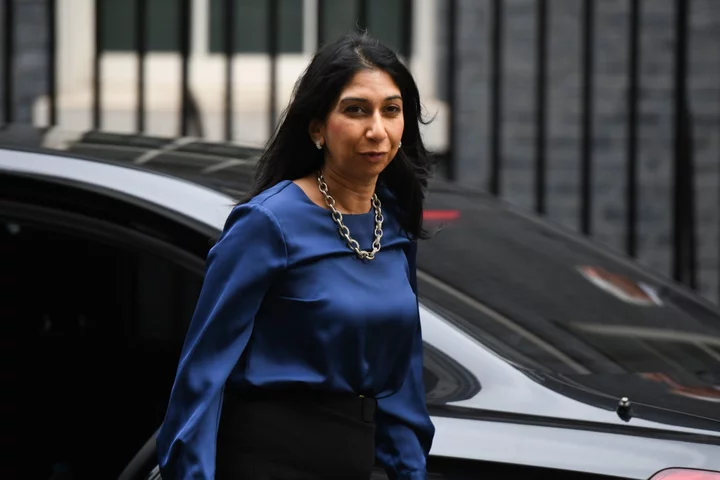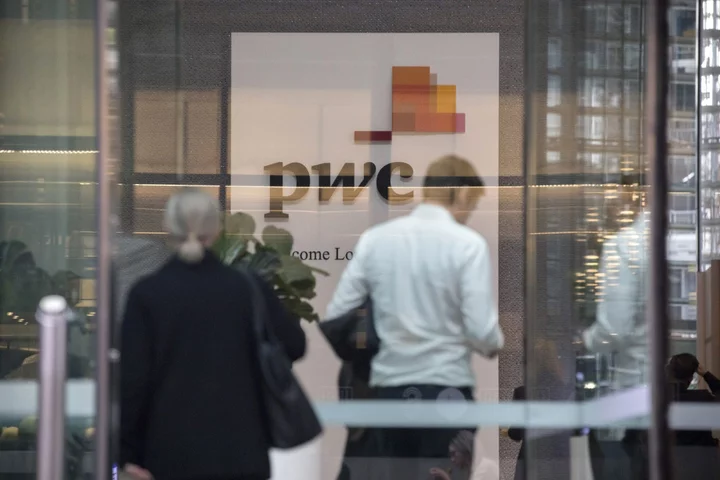Investors in the UK are starting to worry that the anti-ESG movement may spread from the US and get a foothold on the other side of the Atlantic.
The UK Sustainable Investment and Finance Association (UKSIF), whose members oversee more than £19 trillion ($24 trillion) and include JPMorgan Chase & Co. and Barclays Plc, wants Britain’s government to provide clear guidelines that spell out whether it’s part of an asset manager’s fiduciary duty to worry about risks stemming from environmental damage, social unrest and bad corporate governance.
James Alexander, chief executive officer of the association, said he expects that UKSIF and other investor associations will soon “need to make the stronger public case that actively incorporating ESG considerations — including material social factors — isn’t in direct pursuit of an overt political agenda, but necessary for investors to fulfill their fiduciary duty.”
He’s one of a growing number of financial market participants in the UK and European Union watching developments in the US with a sense of unease. The backlash against ESG led by the Republican Party has shocked the industry, as threats of lawsuits and blacklists hit some of the world’s biggest banks and asset managers. The GOP has dubbed ESG an anti-American movement that puts a “woke” agenda ahead of fiduciary duties.
In the US, there’s evidence that anti-ESG rhetoric has led some financial firms to tone down their commitments to ESG in their conversations with clients. And pension funds have been caught in a long-running battle between the Biden administration and Republicans over whether they’re allowed to take ESG risks into account in their investments.
There’s so far little to suggest that similar levels of hostility toward ESG are brewing in Britain. But a few isolated incidents stand out.
During a speech to the UK House of Commons in October defending the right of police to treat Just Stop Oil protesters as criminals, Home Secretary Suella Braverman adopted rhetoric that was straight out of the GOP playbook, as she assailed the “tofu-eating wokerati” that she said dominate the left wing of British politics.
And then in March, the government said it “believes it is important that the ESG agenda isn’t side-tracked by political activism or political agendas” that might steer money away from industries such as weapons.
A 2014 decision by the UK Law Commission that spelled out the scope of fiduciary duties has long been understood by investors to imply that ESG factors should be included when they are “financially material.” And after years of pleading, investors this week got a single, global set of rules for companies to adhere to when reporting on climate and sustainability.
Read More: ESG Investors Get First-Ever Set of Global Reporting Standards
Yet as recently as October, a report by the Principles for Responsible Investment found “many” investors in Britain still hesitate to set sustainability impact goals, “even when this is required to achieve financial objectives.”
The UK investment industry now needs “further clarification” from the relevant authorities around how ESG factors and impact should be interpreted to fulfill fiduciary duties, Alexander said. In some circumstances, investors may need regulatory support “to minimize possible liability risks,” particularly around climate transition plans, he said.
Katharina Lindmeier, senior responsible investment manager at the National Employment Savings Trust, which manages £29 billion, said the lack of guidance is a problem. As a long-term investor, Nest needs “to think about how companies and markets operate and how they treat people and the environment.”
That behavior is “likely to have a material impact on the performance of the companies and other assets we invest in over various time frames,” Lindmeier said. But how to incorporate human rights violations or labor disputes into fiduciary duty is unclear, because social factors are “often overlooked due to a lack of reporting frameworks and high-quality data,” she said.
A recent survey from the Pensions and Lifetime Savings Association shows that its members want the government to do more to address ESG. While there are initiatives under way to tackle concerns around ESG indexes, ratings and data, a number of key areas have yet to be taken on.
“The PLSA has been calling on the government for some while to progress and finalize the UK green taxonomy and to ensure climate reporting is embedded across the investment chain so there is a more consistent basis for asset owners to assess the ESG credentials of a given fund or equity,” Joe Dabrowski, deputy director of policy at the PLSA, said by email.
For now, he said members “worry that climate solutions may have been deprioritized amidst the cost of a living crisis and market volatility.”









